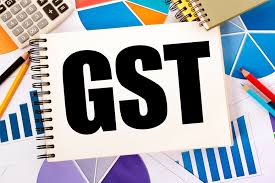GST on insurance premiums should be reduced to 5% or nil: SBI Research
Taxing insurance premiums at 18 per cent at a time when insurance penetration in the country is merely 4.2 per cent is, perhaps, not the best way forward. Instead, the goods and service tax (GST) on life, health, and term premiums should either be reduced to 5 per cent or a “nil” rate so as to cover the maximum population of the country, SBI research said in its report on Tuesday.
In India the insurance penetration is low; the introduction of tax in the realm of insurance may not represent the best step forward. After Covid19 pandemic's effect on the economy, it seems this is the right time to reduce the GST rate to 5 per cent or “Nil” rate on Life/Health/Term insurance to cover the maximum population of India,” the research note said.
Twenty years after India’s insurance sector was opened up, unshackling the control of state-owned companies, as many as 50 private players have set up shop. But India’s insurance penetration needle has moved little. The overall insurance penetration has increased from 2.71 per cent in 2001-02 to just 4.20 per cent as of 2020-21. Life insurance penetration has increased from 2.15 per cent to 3.2 per cent during the period, while non-life insurance penetration has moved up by just 44 basis points to stand at 1 per cent as of 2020-21.
The insurance industry has been advocating a reduction in GST rates on premiums for a very long time, and more so after the Coronavirus (Covid-19) pandemic. While there have been several calls from the industry to the government for a relook at GST on premiums, there has not been much development on this front.
The research has also suggested that to increase insurance penetration in the country, the government may look to enrol the workers of Mahatma Gandhi National Rural Employment Guarantee Act (MGNREGA) under the Pradhan Mantri Jivan Jyoti Bima Yojana (PMJJBY) and Pradhan Mantri Suraksha Bima Yojana (PMSBY) for a premium of Rs 342. This, if done, will cost the government Rs 400 – 500 crore, assuming only 10 per cent of individuals complete 100 days of work and in FY22 approximately 12-13 crore people will work under the scheme.
Further, the report has recommended that the government may announce an opt-in scheme for health insurance in line with Jan Suraksha schemes. The opt-in scheme may be implemented by auto debit amount from the interest from savings account and paid towards mediclaim policy.
India not only suffers from low insurance penetration but also from a high protection gap, the difference between the resources one will need and the resources one has available in the event of an unfortunate event occurring. To plug that protection gap, SBI Research has recommended that the government should come out with some standardised products for various sectors so that the protection gap in each segment can be reduced significantly.
“In India, the overall protection gap in all the segments (both life & non-life) is about 70 to 80 per cent. In other words, only 20 to 30 per cent is availing any type of insurance”, the report added.
Download our App to get knowledge updates: https://play.google.com/store/apps/details?id=com.app.gstmitra




Comments
Post a Comment